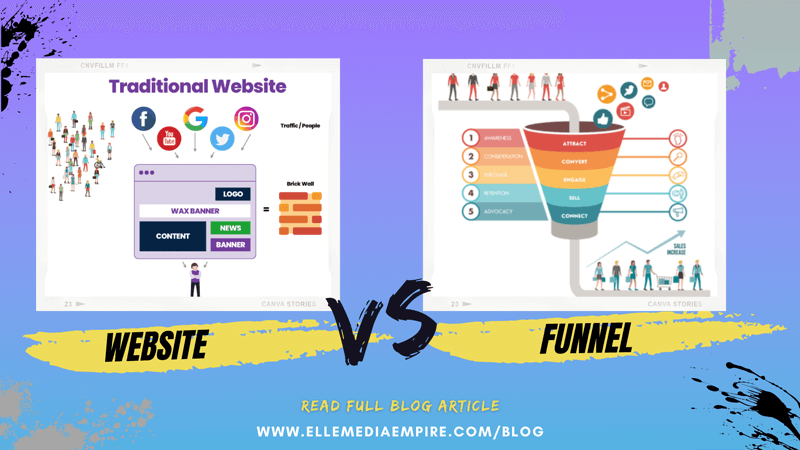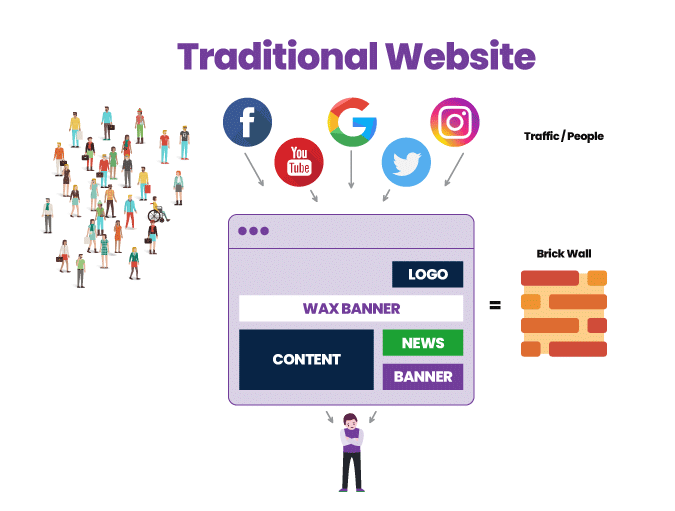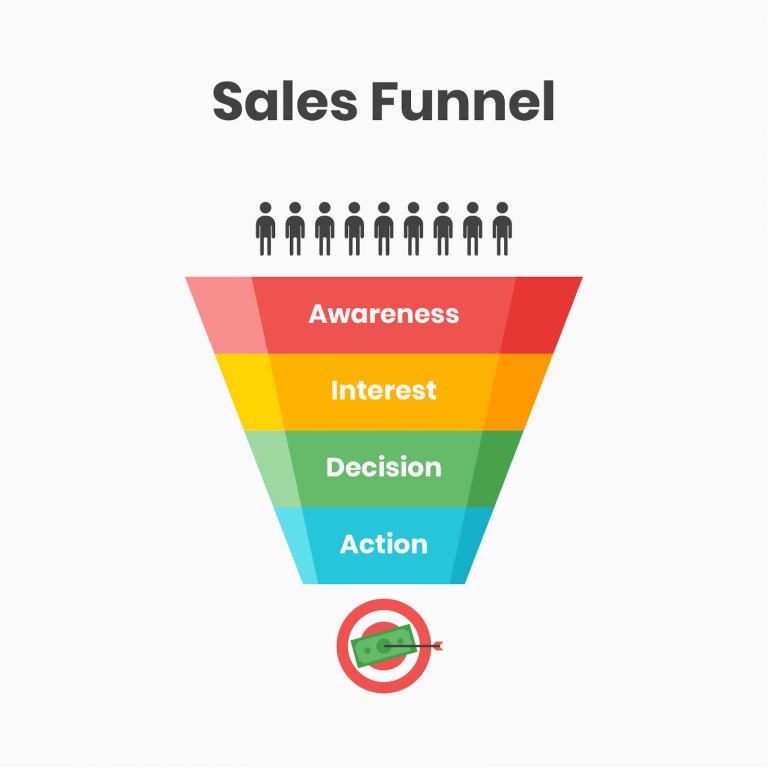What’s the difference between a sales funnel and a website? Do you need both? How do you get started with funnels?
As a Software Engineer & Web Developer, I spent years developing and creating websites with different technologies, different frameworks, different programming languages and in the past year I was introduced to Funnels, and I have mastered it using different funnel building platforms.
When I get on strategy calls with my clients, I get asked these questions a lot, do I need a website? Or a funnel? Or both? And can I replace one with the other?
We’ll help unpack all that for you here, so you confidently know the difference between a funnel and a website.

What is a website?
A website refers to a series of interconnected web pages operated under a single domain name and published on a web server.
It is often including a list of products or services, contact information, and sometimes a blog.
A website is a company’s digital storefront and primarily designed to bring in traffic. While visitors usually see the homepage first, they arrive upon and navigate to any page or post they want.
The visitor’s experience is filled with lots of choice and limited direction.

What is a funnel?
A funnel is a series of web pages set up so that traffic flows linearly from one point of entry;
A sales funnel is the step-by-step process that a prospect follows to become your customer. It’s called a funnel because the process begins with a large number of prospects at the top who are aware of your business and its products or services.
Some of those prospects funnel downward as a result of your marketing efforts, and a fraction of those prospects become customers when they reach the bottom of the funnel.
Sales Funnel 4 Stages
- Stage 1: Awareness
The first of the sales funnel stages is called the “awareness” level, because it’s where people first become aware of your product or service. They may hear about you from your advertising, social media, even word of mouth. - Stage 2: Interest
Once prospects have learned about your brand, they’ll evaluate it based on their interest level. They’ll think about the problem they’re trying to solve and conduct competitive research to make sure your offering is the best solution. - Stage 3: Decision
Armed with information about your company, prospects will dig deeper into your pricing and packaging options. Sales pages, webinars, and calls are helpful in this stage to help sway prospects to make a purchase. - Stage 4: Action
All your work comes down to this stage: whether the prospect makes a purchase or not. If they didn’t, the deal isn’t lost forever. You can create nurture campaigns to make sure you stay top of mind.

Pros: Website vs Funne
| Website Pros | Funnel Pros |
| Showcase your value | Built to convert |
| Houses all your valuable content | Great place to test your offers |
| Attracts traffic organically | Flexible sales techniques |
| Creates trust and builds your brand | Fast to design |
| Builds relationships | In-depth tracking |
| An asset for your business | |
| Your own your website |
Cons: Website vs Funnel
| Website Cons | Funnel Cons |
| Website typically has lower conversion rates | Can’t showcase additional knowledge & resources: blogs, shops, … |
| Can be complex to build and design (and usually requires experts) | Isn’t as effective at building your brand |
| Hard to track results | Success relies on hyper targeted messaging |
| Expensive to maintain | |
| Usually, you don’t own the funnels platform | |
| Can be hard to customize |
So what is the best solution for your business?
- The website is a generalized experience offering a variety of useful information geared to different audience segments.
- Funnels are targeted and focused paths businesses send visitors through to capture leads and drive conversions. They feature deals and special offers instead of the “distractions” on your normal website.
Websites and funnels are companions, not competitors.
The best solution is to have both. Websites and funnels are companions, not competitors. When done effectively, both websites and funnels can elevate your business or brand, making you an unstoppable force in the marketplace.




